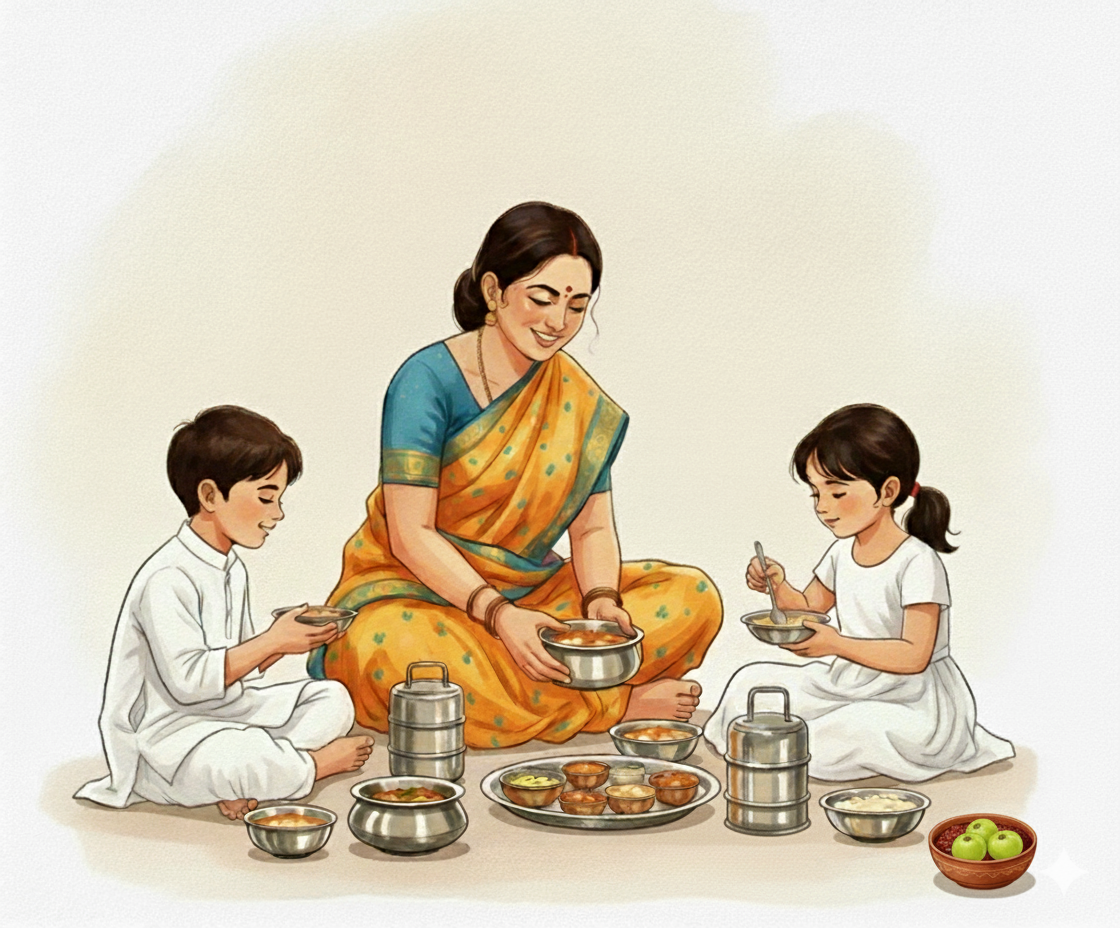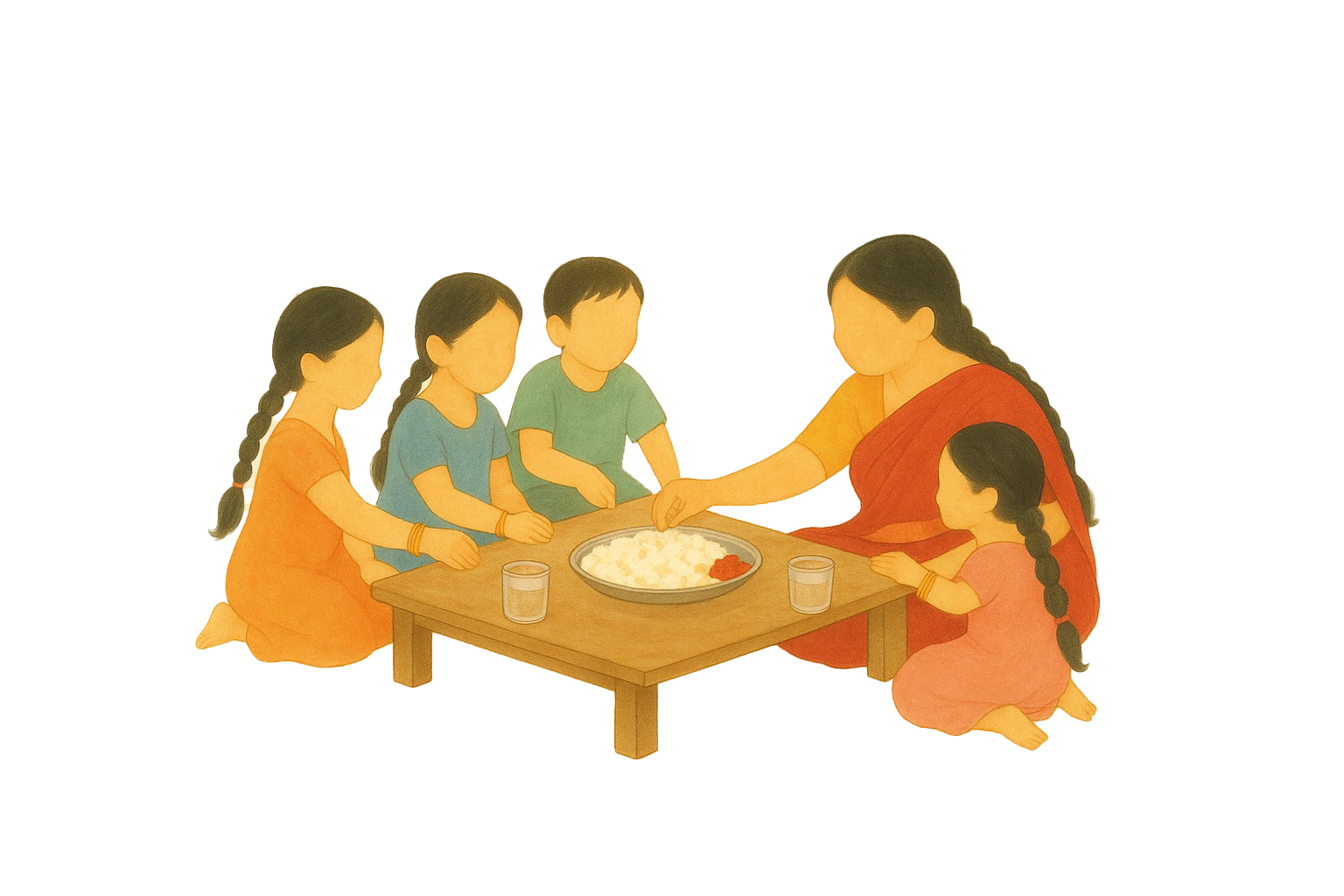
Indian mythology is full of fascinating stories, each one more interesting than the other. And today, we are here to share an ancient story about the Indian Gooseberry, or Amla.

Long long ago, the ancient gods and the powerful demons, went in search of Amritam - the nectar of immortality. To obtain this precious elixir, they decided to churn the cosmic ocean—a task so huge that they used a mountain as a churning stick and a massive serpent as the rope. Many amazing things surfaced as they began to churn.At last came the most awaited Amritam. But right when it appeared, a fierce fight broke out between the gods and demons, each started claiming the nectar. A fierce fight started between them and a few drops of the Amritam fell to earth. And wherever these holy drops landed, the Amla tree sprouted.
We can't say if this story is real or a myth, but we know one thing for sure: Amla, or Usirikaya, has always stood as a symbol for life, health, and longevity. Just like the amritam, people think Usirikaya is the fruit of eternal life giving its strong benefits to all who eat it.
Ayurvedic significance of Usirikaya
Amla, according to the work of Charaka Samhita, is of the highest regard being termed “the best rejuvenating herb”.
A relatively simple but this potent fruit has the capability of alleviating all the three doshas of the body Vata, Pitta and Kapha, which is why it is considered one of the basic ingredients needed for maintaining wellbeing and health.
Balancing Vata Dosha
- The sweet, sour and astringent flavours of Amla pacifies the Vata dosha. Its sweet taste nourishes and stabilizes Vata.
- The sour taste assists in the processes of digestion and assimilation, while the astringent taste counteracts the vitiated Vata which is predominant above all other factors.
- Amla is heavy and oily in nature which is helpful in balancing extremes of dullness and dryness of Vata dosha.
- The cold potency of amla can pacify the uncontrolled activities of the vata dosha.
Balancing Pitta Dosha
- The sour taste of amla is cooling and helps reduce excess heat associated with Pitta imbalance.
- Its sweet taste helps balance the sharpness of Pitta.
- Amla is regarded as an abundant source of vitamin C along with other antioxidants that assist in combating free radicals in the body and cooling the body in general.
- The sourness also acts as an anti-inflammatory helping with swelling and heat stimulation.
Balancing Kapha Dosha
- The amla fruit's astringent, bitter, and sour tastes make it easier to redirect the heaviness associated with Kapha.
- Even though it possesses warming qualities, its lightness and dryness help us dispel the heavy oily Kapha dosha.
- Sour in taste, it is a good aid in improving digestion and metabolism and controlling excess Kapha.
- Amla acts as a natural diuretic, helping the body get rid of excess fluids.
Beyond balancing the doshas, Amla is also known to increase immunity power and improve digestive health. Acting as a good antioxidant, Amla delays the aging process and enhances overall health. With the presence of high vitamin C, it aids the body with effective stress management. In addition, Amla is reputed to support the body’s respiratory system, strengthen eyesight, hair and skin health. Its anti-inflammatory property helps in relieving ailment associated with joints and orthopaedic inflammations.
Cultivation of Usiri chettu
The cultivation of Amla in India is widespread. The amla trees are very tough and can grow in different types of soils making them easy to cultivate. The amla varieties are mostly grown naturally with minimal interventions. This sustainable approach ensured the availability of Amla and also maintained the ecological balance - the trees provide shade and support the soil structure. The Amla tree is valued not just for its fruit but also for its ability to improve the health of the surrounding environment.
Culinary evolution of Usirikaya
Usirikaya stands out for its unique flavour - a perfect mix of sour, bitter, and astringent tastes. This special combination makes Usirikaya a key ingredient in many Indian dishes. When you take your first bite of an Amla, you will notice a sharp sourness on your tongue then a hint of bitterness that stays for a while, and a light sweetness that comes through as you keep chewing. These flavours don't just make Amla tasty on its own, but also allow it to fit well with lots of different foods..
Culinary Evolution of Usirikaya in India
The culinary journey of Usirikaya in India is as rich and varied. Historically, Usirikaya has been a staple in Indian kitchens, particularly in South India, where it has been used in various forms - from raw and pickled to cooked and dried.
Traditional Dishes
With culinary practices the way usirikaya is consumed has also evolved in Indian cooking. It became a key ingredient in various traditional dishes. One of the most common preparations was Usirikaya thokku Pachadi and Usiriavakaya, a pickle that combined the sourness of Amla with spices, creating a flavorful side dish that could be enjoyed with rice, idlis, or dosas.
In addition to its tangy taste, Usirikaya has cooling properties making it a key ingredient in making dishes that maintains body’s heat especially in hot and humid climates. That is the reason pickling is a popular method of preserving usirikaya during its peak season.
Modern Adaptations
In contemporary Indian cuisine, Usirikaya has found a new expression. While traditional recipes like Pachadi and pickles remain popular, there has been a growing trend of enjoying Amla through Amla juice, smoothies, salads and even mocktails, where its tartness adds a zesty flavour. Also, it’s often combined with other fruits and vegetables to create fusion flavours. Dried Amla is used in snacks and sweets, offering a tangy twist to traditional Indian flavours.
Conclusion
Today, Usirikaya is more than just a fruit. It is a symbol of life, health, and tradition of Indian culture. From ancient stories to its role in Ayurveda, Usirikaya has been a part of Indian kitchens for centuries. Its unique taste adds depth to any dish and its health benefits stand unmatched. Today, whether in a classic Usirikaya Pachadi or a modern smoothie, Usirikaya continues to nourish us, increasing our health and longevity as a super fruit of immortality.



























